

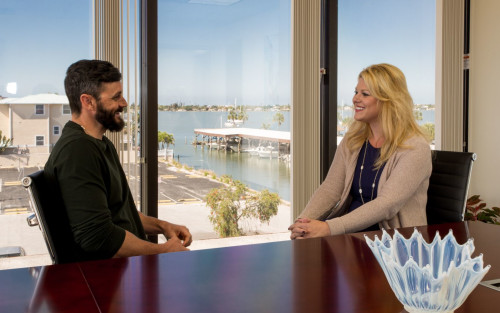




Tranquil Shores
Verified Center
This provider's information has been quality-checked by Recovery.com's Research Team for accuracy and completeness, including center verification through appropriate third-party organizations.
Treatment Focus
This center treats substance use disorders and co-occurring mental health conditions. Your treatment plan addresses each condition at once with personalized, compassionate care for comprehensive healing.
Primary Level of Care
Offering intensive care with 24/7 monitoring, residential treatment is typically 30 days and can cover multiple levels of care. Length can range from 14 to 90 days typically.
Treatment Focus
This center treats substance use disorders and co-occurring mental health conditions. Your treatment plan addresses each condition at once with personalized, compassionate care for comprehensive healing.
Primary Level of Care
Offering intensive care with 24/7 monitoring, residential treatment is typically 30 days and can cover multiple levels of care. Length can range from 14 to 90 days typically.
Provider's Policy
Admissions Coordinators are standing by. Contact us directly to verify your insurance and to begin the admissions process. We ONLY accept PPO policies. We do not accept HMO, EPO, or state-funded policies. We CANNOT accept Medicaid or Medicare.
Tranquil Shores
Tranquil Shores
About Tranquil Shores
Tranquil Shores offers a serene residential recovery environment by St. Petersburg. Their 30 to 90-day programs use a comprehensive clinical curriculum and evidence-based treatments. Tranquil Shores specializes in treating dual diagnoses, like trauma and depression, and substance use disorder. They strive to ensure a high level of support from staff and provide a unique 3:1 client-to-counselor ratio. Tranquil Shores provides intervention services for family members and a flexible technology policy.
Clinically-Backed Care
Tranquil Shores supports clients in their detox, residential, and day treatment programs through tailored care and evidence-based therapies. Clients engage in cognitive behavioral therapy (CBT), motivational interviewing, and accelerated resolution therapy (ART). Gender-specific treatment addresses the unique needs of men and women in recovery. Tranquil Shores’ comprehensive family program includes family dynamics group sessions, monthly private counseling, and weekly communication. Life skills training helps clients learn valuable tools to ease the transition home post-treatment.
Specialized Programs
Tranquil Shores creates highly customized treatment for their clients through various specialized tracks. Their athlete program provides special care for chronic pain and addiction. Tranquil Shores’ executive program offers confidential care and access to phones and laptops with time to work built into their treatment schedule. Topics covered in group therapy in the executive program include self-care, stress management, and nutrition education. Their medical professional program helps clients with career restoration and licensing issues, and the military program focuses on treating PTSD.
Serene, Holistic Recovery
Tranquil Shores offers exercise and nutritional counseling combined with chiropractic and massage therapy to address physical needs in recovery. Holistic practitioners uses yoga, massage, meditation, and relaxation techniques to reduce stress. Art therapy, vibroacoustic therapy (a sound technology using audible sound vibrations to reduce symptoms and alleviate stress), and other experiential therapies incorporate practical activities into the healing to develop healthy life habits. Tranquil Shores’ 24-bed facility is nestled just inside a small barrier island on the Gulf of Mexico, providing a calm and peaceful place for clients in recovery.

Highlights from the Center
Highlights
These highlights are provided by and paid for by the center.
Perfect for Professionals
Beach Access
Tech Friendly
Center Overview
Treatment Focus
This center treats substance use disorders and co-occurring mental health conditions. Your treatment plan addresses each condition at once with personalized, compassionate care for comprehensive healing.
Joint Commission Accredited
The Joint Commission accreditation is a voluntary, objective process that evaluates and accredits healthcare organizations (like treatment centers) based on performance standards designed to improve quality and safety for patients. To be accredited means the treatment center has been found to meet the Commission's standards for quality and safety in patient care.
Insurance Accepted
Cash Pay Rates
Estimated Cash Pay Rate
Center pricing can vary based on program and length of stay. Contact the center for more information. Recovery.com strives for price transparency so you can make an informed decision.
Meet Your Care Team

Chad Johnson
Founder & CEO

Roberta Bruni
Executive Director
MSW, LCSW, MCAP, ICRC-ADC, C-DBT, CASDCS

Richard Aranibar
Medical Director
M.D.

Beth Tumarkin
Director of Clinical Services
M.D.

Cecilia Williams
Medical/Psychiatry
MSN, FNP, PMHNP-BC

Jane Nichilo
Medical/Psychiatry
MSN, PMHNP-BC
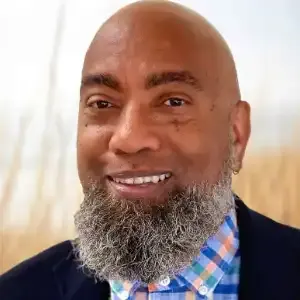
Derek Kee-Haynes
Director of Clinical Outreach
MSW, MA, LCSW, MCAP
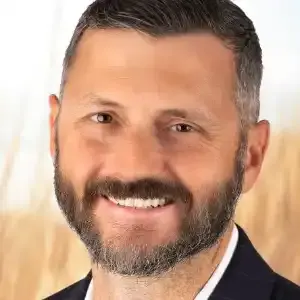
Jared Freese
Program Director
CBHT

Bret Appel
Director of Business Operations
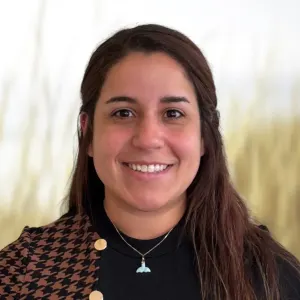
Raquel McCranie
Clinical Supervisor
LHMC, QS
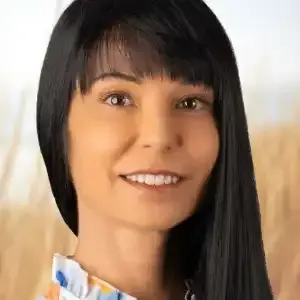
Lynn Pyz
Senior Program Advisor
CAP, ICADC, CTP, CRRA, NCLC, NCFRC
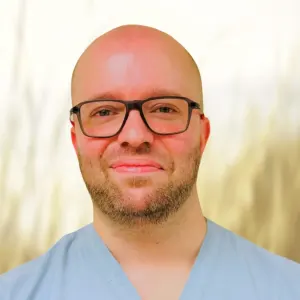
James Rice
Nursing Supervisor
BSN, RN

Elizabeth Brownell
Primary Therapist
MSW, RCSWI
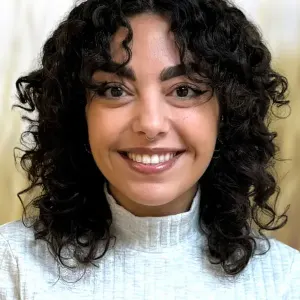
Rachel Harris
Primary Therapist
MSW
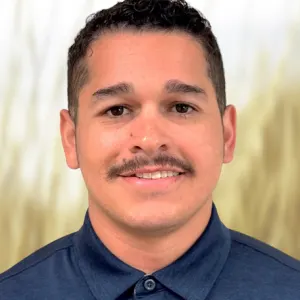
Angel Reyes
Primary Therapist
MSW

JC Carr
Clinical Case Manager

Barbara Przepierzynski
Human Resources Coordinator
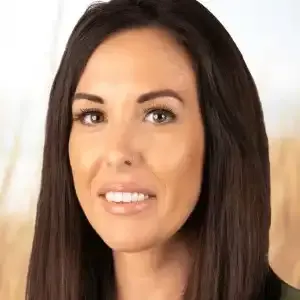
Audrey Hill
Office Manager
CCAR RC
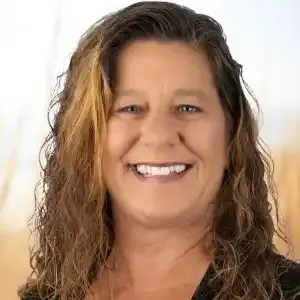
Bonnie Rettka
Support Staff Supervisor
CBHT, CRRA
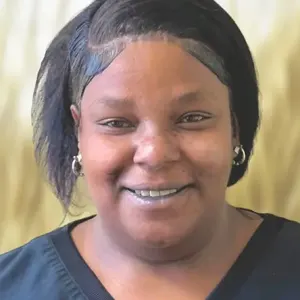
LaQuisha Jenkins
Certified Clinical Medical Assistant
CCMA
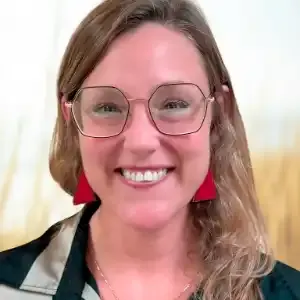
Samantha Hill
Admissions Coordinator
MA

Leigh Simons
Alumni Coordinator
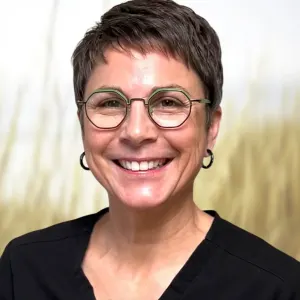
Kecia Fowler
Acupuncturist
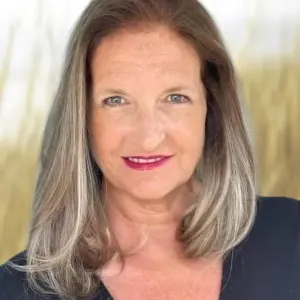
Dawn Ditty
Licensed Massage Therapist
LMT/CST
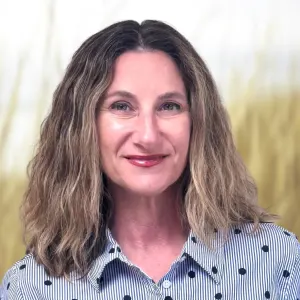
Wendy Wesley
Dietitian/Nutritionist
RDN




Levels of Care






Your Care Options
Specializations
Alcohol
Using alcohol as a coping mechanism, or drinking excessively throughout the week, signals an alcohol use disorder.
Co-Occurring Disorders
A person with multiple mental health diagnoses, such as addiction and depression, has co-occurring disorders also called dual diagnosis.
Drug Addiction
Drug addiction is the excessive and repetitive use of substances, despite harmful consequences to a person's life, health, and relationships.
Opioids
Opioids produce pain-relief and euphoria, which can lead to addiction. This class of drugs includes prescribed medication and the illegal drug heroin.
Prescription Drugs
It's possible to abuse any drug, even prescribed ones. If you crave a medication, or regularly take it more than directed, you may have an addiction.
Who We Treat
Older Adults
Addiction and mental health treatment caters to adults 55+ and the age-specific challenges that can come with recovery, wellness, and overall happiness.
Executives
Executive treatment programs typically directly support the needs of people who manage businesses and may provide flexible schedules and office space to allow work during treatment.
Young Adults
Emerging adults ages 18-25 receive treatment catered to the unique challenges of early adulthood, like college, risky behaviors, and vocational struggles.
LGBTQ+
Addiction and mental illnesses in the LGBTQ+ community must be treated with an affirming, safe, and relevant approach, which many centers provide.
Men and Women
Men and women attend treatment for addiction in a co-ed setting, going to therapy groups together to share experiences, struggles, and successes.
Midlife Adults
For adults ages 40+, treatment shifts to focus on the unique challenges, blocks, and risk factors of their age group, and unites peers in a similar community.
Professionals
Busy, high-ranking professionals get the personalized treatment they need with greater accommodations for work, privacy, and outside communication.
Approaches
Evidence-Based
A combination of scientifically rooted therapies and treatments make up evidence-based care, defined by their measured and proven results.
Family Involvement
Providers involve family in the treatment of their loved one through family therapy, visits, or both–because addiction is a family disease.
Holistic
A non-medicinal, wellness-focused approach that aims to align the mind, body, and spirit for deep and lasting healing.
Personalized Treatment
The specific needs, histories, and conditions of individual patients receive personalized, highly relevant care throughout their recovery journey.
Therapies
1-on-1 Counseling
Patient and therapist meet 1-on-1 to work through difficult emotions and behavioral challenges in a personal, private setting.
Meditation & Mindfulness
A practiced state of mind that brings patients to the present. It allows them to become fully aware of themselves, their feelings, and the present moment.
Trauma-Specific Therapy
This form of talk therapy addresses any childhood trauma at the root of a patient's current diagnosis.
Rational Emotive Behavior Therapy
A type of cognitive therapy that identifies negative self-defeating thoughts and behaviors, rewriting beliefs to be positive, empowering, and present.
Mindfulness Therapy
This ancient practice can be mental, emotional, and even spiritual. In meditation, you focus your attention on the present moment without judgement.
Attachment-Based Family Therapy
ABFT is a trauma-focused therapy that teaches you to form healthy relationships by rebuilding trust and healing attachment issues formed in childhood.
Art Therapy
Visual art invites patients to examine the emotions within their work, focusing on the process of creativity and its gentle therapeutic power.
Body Image Therapy
Therapists use cognitive behavior techniques to challenge how patients perceive their body and their worth, rewriting negative thoughts and attitudes.
Conditions We Treat
Chronic Pain Management
Long-term physical pain can have an affect on mental health. Without support, it can also impact your daily life and even lead to addiction.
Post Traumatic Stress Disorder
PTSD is a long-term mental health issue caused by a disturbing event or events. Symptoms include anxiety, dissociation, flashbacks, and intrusive thoughts.
Trauma
Some traumatic events are so disturbing that they cause long-term mental health problems. Those ongoing issues can also be referred to as "trauma."
Substances We Treat
Alcohol
Using alcohol as a coping mechanism, or drinking excessively throughout the week, signals an alcohol use disorder.
Benzodiazepines
Benzodiazepines are prescribed to treat anxiety and sleep issues. They are highly habit forming, and their abuse can cause mood changes and poor judgement.
Chronic Relapse
Consistent relapse occurs repeatedly, after partial recovery from addiction. This condition requires long-term treatment.
Co-Occurring Disorders
A person with multiple mental health diagnoses, such as addiction and depression, has co-occurring disorders also called dual diagnosis.
Cocaine
Cocaine is a stimulant with euphoric effects. Agitation, muscle ticks, psychosis, and heart issues are common symptoms of cocaine abuse.
Drug Addiction
Drug addiction is the excessive and repetitive use of substances, despite harmful consequences to a person's life, health, and relationships.
Ecstasy
Ecstasy is a stimulant that causes intense euphoria and heightened awareness. Abuse of this drug can trigger depression, insomnia, and memory problems.
Heroin
Heroin is a highly addictive and illegal opioid. It can cause insomnia, collapsed veins, heart issues, and additional mental health issues.
Languages
Aftercare
Care Designed for Your Needs
Personal Amenities
Amenities
Special Considerations
Executive Program
Addiction and mental health treatment for executives typically involves high discretion, greater technology access, and more private, 1-on-1 care.
Flexible technology policies
Centers with flexible technology policies allow professionals to stay in touch with work and give patients a greater sense of connection and normalcy.
Gender-specific groups
Patients in gender-specific groups gain the opportunity to discuss challenges unique to their gender in a comfortable, safe setting conducive to healing.
LGBTQ group
Group therapy unites LGBTQ+ patients in a safe and culturally competent setting, encouraging peer support under the expert leadership of a therapist.
Activities
Yoga
Yoga is both a physical and spiritual practice. It includes a flow of movement, breathing techniques, and meditation.
Off-Site Activities
Off-Site Amenities
What people are saying
Treatment
4.8
Accommodations
4.9
Food & Nutrition
4.8
Value
4.8
T K
Reviewed 04/22/21
Review from Rehabs.com
R.W.
Reviewed 03/18/21
Review from Rehabs.com
W.G.
Reviewed 09/30/20
Review from Rehabs.com
TS
Reviewed 08/19/20
Review from Rehabs.com
J W
Reviewed 01/08/19
Review from Rehabs.com






